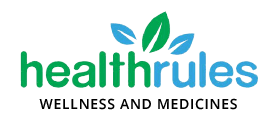
Understanding Preeclampsia Screening: What You Need to Know
Preeclampsia is a serious pregnancy complication that can pose significant risks to both the mother and the baby. It is characterised by high blood pressure and potential damage to organs, particularly the liver and kidneys. Early detection through preeclampsia screening is crucial for managing the condition and safeguarding the well-being of both mother and child.
What is Preeclampsia?
Preeclampsia usually develops after the 20th week of pregnancy and can occur up to six weeks postpartum. The exact cause of preeclampsia is unknown, but it is believed to be related to issues with the placenta. Some risk factors include a history of preeclampsia, chronic hypertension, first-time pregnancy, obesity, and multiple pregnancies (twins, triplets).
Importance of Preeclampsia Screening
Preeclampsia screening is essential for identifying women at risk, allowing for early monitoring and intervention. Timely detection helps prevent complications like eclampsia (seizures), placental abruption, and premature birth, which can pose serious risks to both the mother and baby.
How is Preeclampsia Screened?
Preeclampsia screening involves several tests and evaluations:
- Blood Pressure Monitoring:
Regular blood pressure checks are one of the most important aspects of preeclampsia screening. A sudden increase in blood pressure can be an early sign of the condition.
- Urine Tests:
Checking for protein in the urine is another key component of preeclampsia screening. Proteinuria (excess protein in the urine) can indicate kidney damage, a common sign of preeclampsia.
- Blood Tests:
Blood tests can help assess liver function, kidney function, and platelet count, which may all be affected by preeclampsia. Abnormal levels of liver enzymes, low platelet count, and signs of haemolysis (breaking down of red blood cells) can indicate severe preeclampsia.
- Ultrasound:
An ultrasound may be performed to check the baby’s growth and amniotic fluid levels. Preeclampsia can restrict blood flow to the placenta, leading to growth problems in the baby.
- Doppler Studies:
Doppler ultrasound studies assess blood flow in the umbilical artery and can help detect abnormalities in placental blood flow, which is often compromised in preeclampsia.
Risk Factors for Preeclampsia
Preeclampsia can occur in any pregnancy, but certain factors increase the risk:
- First-time pregnancy: Preeclampsia is more frequently seen in first-time pregnancies.
- Family history: If close relatives, like your mother or sisters, experienced preeclampsia, your risk is higher.
- Chronic hypertension: Pre-existing high blood pressure can elevate the chances of developing preeclampsia during pregnancy.
- Multiple pregnancies: Expecting twins, triplets, or more increases the likelihood of preeclampsia.
- Obesity: Being overweight or obese significantly raises the risk of developing preeclampsia.
Managing Preeclampsia
If preeclampsia is diagnosed, close monitoring and prompt management are crucial. Treatment options may include:
- Medications/drugs to reduce blood pressure and prevent seizures.
- Reduced physical activity or bed rest may be recommended, depending on the severity of the condition.
- In more severe cases, early delivery may be necessary to protect the health of both the mother and baby.
Take Away
Preeclampsia is a serious condition that requires early detection and careful management. Regular screening, including blood pressure checks, urine tests, and blood tests, helps identify risks early on, allowing timely intervention. Pregnant women, especially those at higher risk, should work closely with their healthcare providers to safeguard both their health and their baby’s well-being throughout pregnancy.
Apollo Cradle & Children’s Hospital is renowned for its comprehensive maternal and childcare services. With a team of highly qualified specialists, including experienced obstetricians and paediatricians in Greater Noida, the hospital is committed to delivering exceptional care for mothers and newborns.
In addition to preeclampsia management, Apollo Cradle offers personalised care plans that include nutrition counselling, childbirth education, and postpartum support, ensuring mothers are well-prepared for every stage of pregnancy and beyond. The hospital’s state-of-the-art facilities and compassionate approach make it a trusted choice for families seeking quality healthcare. From routine check-ups to high-risk pregnancies, Apollo Cradle’s dedication to patient-centred care ensures comfort and peace of mind throughout your healthcare journey.



Average Rating